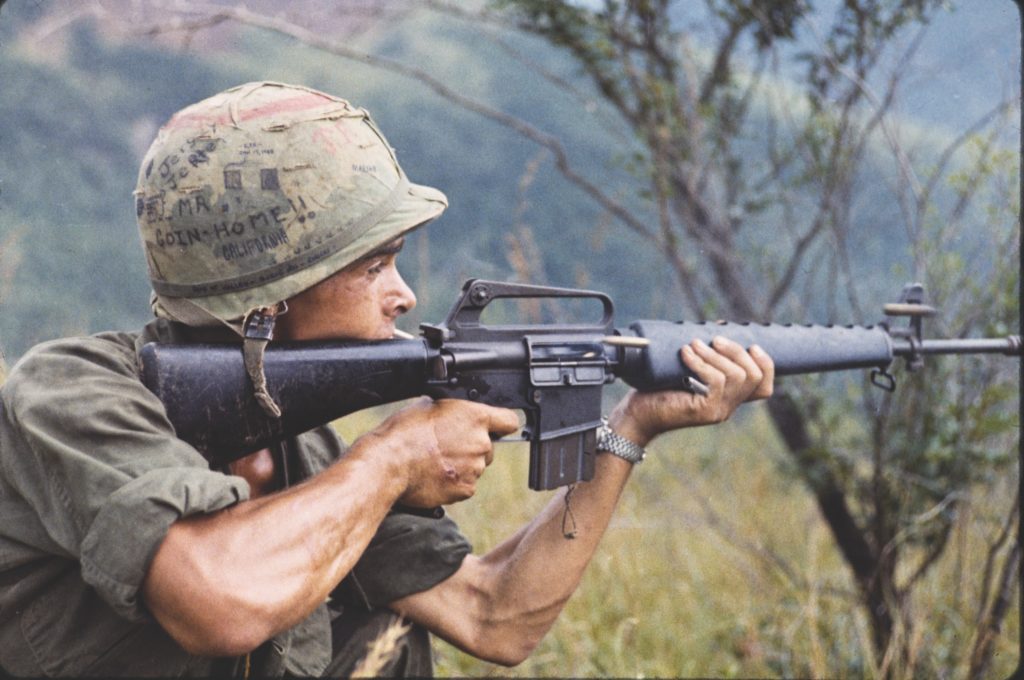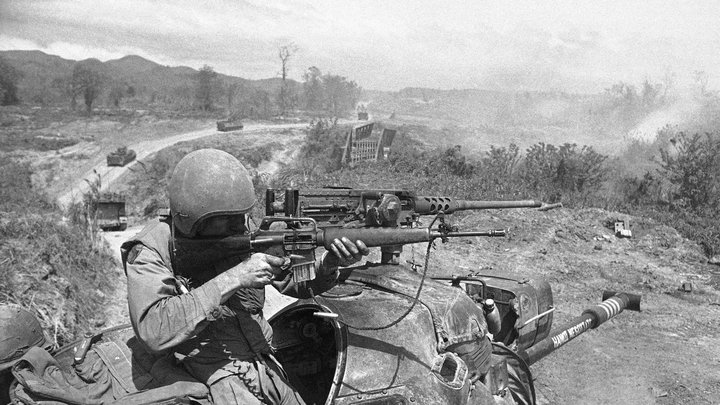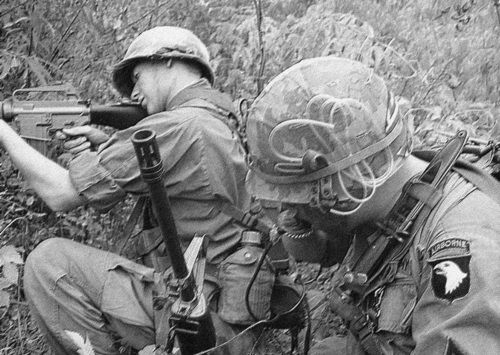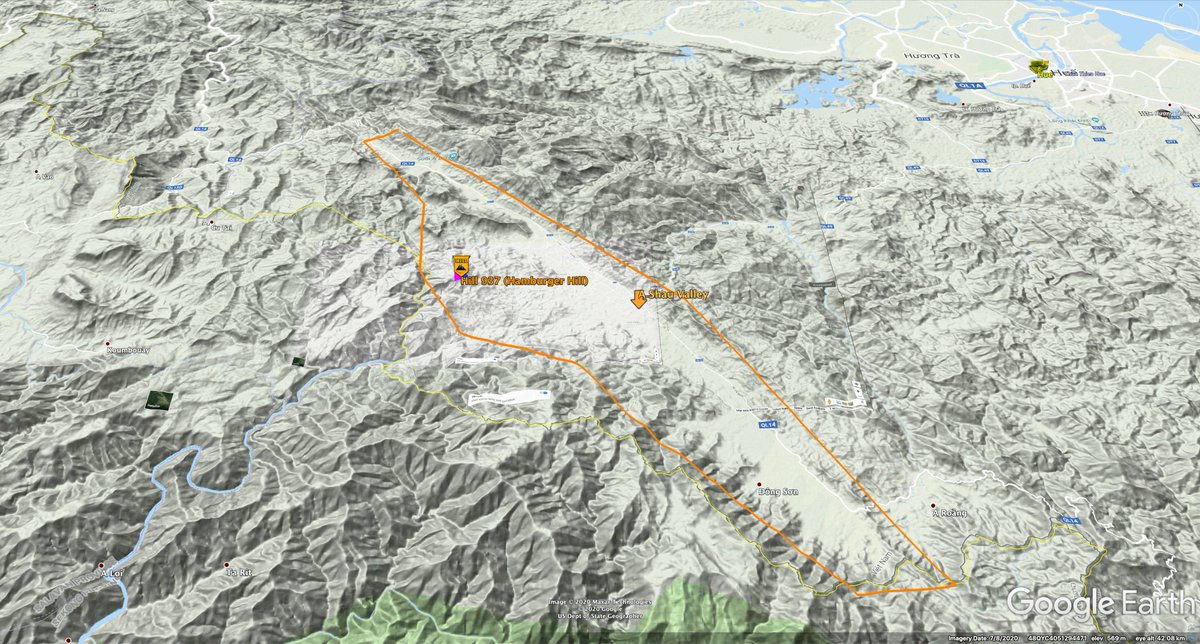
[1 of 48]
Today, we're continuing the story of Ralph Puckett, the legendary Ranger awarded the Nation's highest honor by President Biden in the White House yesterday.
Today, we're continuing the story of Ralph Puckett, the legendary Ranger awarded the Nation's highest honor by President Biden in the White House yesterday.

[2 of 48]
Yesterday we told the story of his valorous action in the Korean War that earned him that ceremony.
But the 94-year-old has already lived many lives, more than we could tell in a single tweet thread.
Yesterday we told the story of his valorous action in the Korean War that earned him that ceremony.
But the 94-year-old has already lived many lives, more than we could tell in a single tweet thread.

[3 of 48]
Ralph's story only begins with the fight for Hill 205 in November, 1950. Ralph was grievously wounded three times in that fight, ending his Korean War. He was evacuated to this US Army hospital in Japan the next day.
Ralph's story only begins with the fight for Hill 205 in November, 1950. Ralph was grievously wounded three times in that fight, ending his Korean War. He was evacuated to this US Army hospital in Japan the next day.
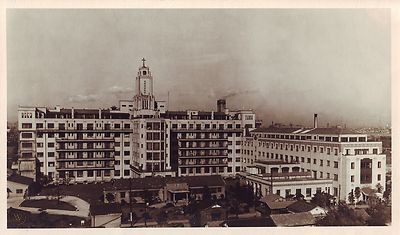
[4 of 48]
When he arrived in the hospital, doctors told the young Lieutenant Puckett that his Army service was over. Ralph informed them they were wrong. Turns out they were.
When he arrived in the hospital, doctors told the young Lieutenant Puckett that his Army service was over. Ralph informed them they were wrong. Turns out they were.
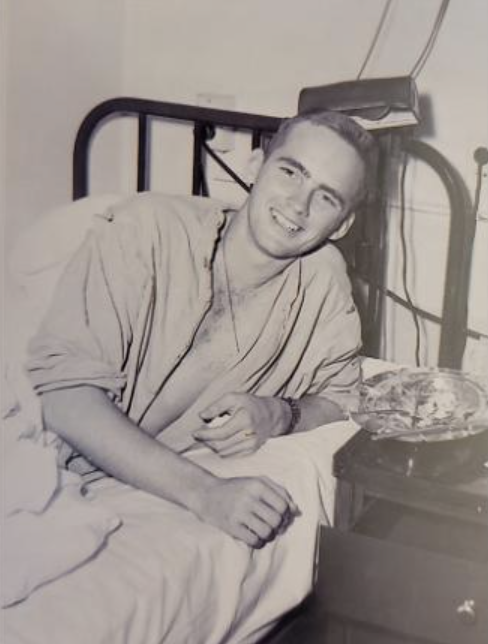
[5 of 48]
After recovering from his wounds, Ralph was assigned to the Army's Ranger department in Fort Benning.
After recovering from his wounds, Ralph was assigned to the Army's Ranger department in Fort Benning.

[6 of 48]
In Fort Benning worked to regain his fitness after his recovery while building out Ranger School to prepare troops for the kind of close combat fighting he saw in Korea. He also married Jeannie Martin, a woman from Columbus, Georgia who visited him in the hospital.
In Fort Benning worked to regain his fitness after his recovery while building out Ranger School to prepare troops for the kind of close combat fighting he saw in Korea. He also married Jeannie Martin, a woman from Columbus, Georgia who visited him in the hospital.

[7 of 48]
In Fort Benning, Ralph reflected on the Korean War and built out a leadership philosophy based on caring for Soldiers, on always feeling the same suffering as his troops.
In Fort Benning, Ralph reflected on the Korean War and built out a leadership philosophy based on caring for Soldiers, on always feeling the same suffering as his troops.

[8 of 48]
In 1954, a Latin sojourn: Captain Puckett & Jeannie moved to Colombia where he established Colombian Army Escuela de Lanceros.
Ralph's Ranger School for the Colombian Army was to build a new type of Soldier amidst a violent Colombian insurgency.
In 1954, a Latin sojourn: Captain Puckett & Jeannie moved to Colombia where he established Colombian Army Escuela de Lanceros.
Ralph's Ranger School for the Colombian Army was to build a new type of Soldier amidst a violent Colombian insurgency.

[9 of 48]
Ralph spent a year building the school, always making progress. He built relations with the Colombian Soldiers, learning as much Spanish as he could to show good faith with his men.
Ralph spent a year building the school, always making progress. He built relations with the Colombian Soldiers, learning as much Spanish as he could to show good faith with his men.

[10 of 48]
To build a sense of identity, Ralph worked with his Colombian troops to develop a unit insignia for the Lancero school cadre: an outline of a map of Colombia with a crouching warrior ready to throw a spear. The words Loyalty, Valor, and Sacrifice appear on the bottom.
To build a sense of identity, Ralph worked with his Colombian troops to develop a unit insignia for the Lancero school cadre: an outline of a map of Colombia with a crouching warrior ready to throw a spear. The words Loyalty, Valor, and Sacrifice appear on the bottom.

[11 of 48]
Ralph built a new Colombian unit to run the school and gave that unit a sense of pride and legacy based on Colombian military history.
In the end, the school improved the Colombian Army and would serve as a model for other South American countries.
Ralph built a new Colombian unit to run the school and gave that unit a sense of pride and legacy based on Colombian military history.
In the end, the school improved the Colombian Army and would serve as a model for other South American countries.

[12 of 48]
During that year, Ralph refined his leadership philosophy: a clear statement of mission, a unit identity, supervision as appropriate, and always striving for improvement.
During that year, Ralph refined his leadership philosophy: a clear statement of mission, a unit identity, supervision as appropriate, and always striving for improvement.

[13 of 48]
From 1956 to 1960, Ralph, now a Major, engaged in more traditional assignments: officers schooling, & US Military Academy Prep School. He and Jeannie had two children during this period.
From 1956 to 1960, Ralph, now a Major, engaged in more traditional assignments: officers schooling, & US Military Academy Prep School. He and Jeannie had two children during this period.

[14 of 48]
In 1960, Ralph was assigned to West Point as an instructor, but he pulled himself off the traditional Army officer career-building pathway and sought assignment at the 10th SF Group in Germany.
In 1960, Ralph was assigned to West Point as an instructor, but he pulled himself off the traditional Army officer career-building pathway and sought assignment at the 10th SF Group in Germany.

[15 of 48]
Ralph had great timing: the new JFK administration had just abandoned massive bombing as the fulcrum of defense policy and instead invested in Special Forces. He took advantage of the administration's support.
Ralph had great timing: the new JFK administration had just abandoned massive bombing as the fulcrum of defense policy and instead invested in Special Forces. He took advantage of the administration's support.

[16 of 48]
Ralph built out the 10th SF Group as a flexible force, able to conduct almost any mission and integrate with NATO partners. He focused on teaching his men to operate waterborne from submarines and to fight in mountains.
Ralph built out the 10th SF Group as a flexible force, able to conduct almost any mission and integrate with NATO partners. He focused on teaching his men to operate waterborne from submarines and to fight in mountains.

[17 of 48]
Ralph considers the 10th SF Group command among the most rewarding assignments of his career.
He added elements to his leadership philosophy: a unit needs a clear role, meaningful service, and a shared legacy.
Ralph considers the 10th SF Group command among the most rewarding assignments of his career.
He added elements to his leadership philosophy: a unit needs a clear role, meaningful service, and a shared legacy.
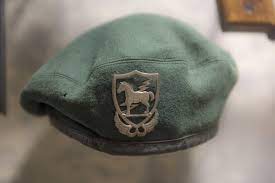
[18 of 48]
1963 to 1967 saw a promotion to Lt. Colonel and traditional career-making assignments (Armed Forces Staff College, the Pentagon, Army War College). All the while, Ralph knew he was missing an opportunity to lead in the new war in Vietnam. His time was coming.
1963 to 1967 saw a promotion to Lt. Colonel and traditional career-making assignments (Armed Forces Staff College, the Pentagon, Army War College). All the while, Ralph knew he was missing an opportunity to lead in the new war in Vietnam. His time was coming.

[19 of 48]
In July, 1967, LTC Puckett graduated the Army War College and headed direct to Saigon for his new assignment: commander of the 18th Airborne's 2nd Battalion, 502nd Infantry Regiment (Airborne).
In July, 1967, LTC Puckett graduated the Army War College and headed direct to Saigon for his new assignment: commander of the 18th Airborne's 2nd Battalion, 502nd Infantry Regiment (Airborne).

[20 of 48]
For the first time in his career, Puckett arrived at a unit that was already disciplined and battle-hardened with an established legacy (WWII and the early years of Vietnam) and unit identity. In fact, it was considered one of the top-performing units Vietnam.
For the first time in his career, Puckett arrived at a unit that was already disciplined and battle-hardened with an established legacy (WWII and the early years of Vietnam) and unit identity. In fact, it was considered one of the top-performing units Vietnam.

[21 of 48]
2-502 was an airmobile force focused on search-and-destroy operations against the VC and NVA. Given his lack of air assault experience, Ralph leaned on his NCOs as the unit conducted operations across the Central Highlands.
2-502 was an airmobile force focused on search-and-destroy operations against the VC and NVA. Given his lack of air assault experience, Ralph leaned on his NCOs as the unit conducted operations across the Central Highlands.

[22 of 48]
August 13, 1967: 2-502 conducts an air assault to find, fix, and destroy VC/NVA forces. Immediately upon insertion, all companies come under heavy fire from a massive ambush. Rather than lead from a command post, Ralph inserts on a hot LZ & begins organizing a defense
August 13, 1967: 2-502 conducts an air assault to find, fix, and destroy VC/NVA forces. Immediately upon insertion, all companies come under heavy fire from a massive ambush. Rather than lead from a command post, Ralph inserts on a hot LZ & begins organizing a defense

[23 of 48]
By now Puckett was a legendary warrior. Word of his arrival spread like wildfire among the men of 2-502.
By now Puckett was a legendary warrior. Word of his arrival spread like wildfire among the men of 2-502.
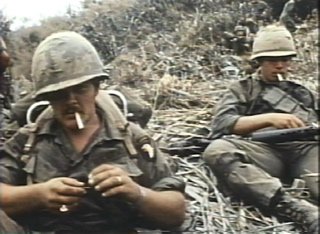
[24 of 48]
As night fell, Ralph put himself on the forward line to assess the VC attack. He heard mortars, grenades, and 40-mm rockets closing in. He was scared but put the situation in the Lord's hands.
As night fell, Ralph put himself on the forward line to assess the VC attack. He heard mortars, grenades, and 40-mm rockets closing in. He was scared but put the situation in the Lord's hands.

25/48
As a wave attack of VC kicked off, Ralph put his men at easy by making a glib remark on the radio: "You know, I'm never spending the night with you guys again." The men ate it up.
For hours, the battalion repelled the attack as Ralph directed artillery and ammo resupply.
As a wave attack of VC kicked off, Ralph put his men at easy by making a glib remark on the radio: "You know, I'm never spending the night with you guys again." The men ate it up.
For hours, the battalion repelled the attack as Ralph directed artillery and ammo resupply.
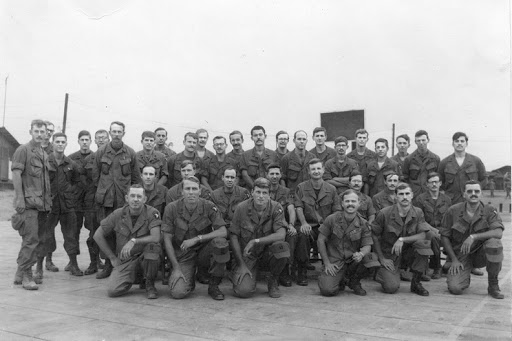
[26 of 48]
Ralph ran from one command post tot he next. He visited foxholes. He talked up the troops. He checked defensive positions.
Ralph ran from one command post tot he next. He visited foxholes. He talked up the troops. He checked defensive positions.

[27 of 48]
His calm demeanor inspired the men. As they prepared for a last stand, the men stiffened up knowing "the Ranger" was leading them.
By 2AM, 2-502 repelled the last VC attack. Ralph walked the perimeter congratulating the men.
His calm demeanor inspired the men. As they prepared for a last stand, the men stiffened up knowing "the Ranger" was leading them.
By 2AM, 2-502 repelled the last VC attack. Ralph walked the perimeter congratulating the men.

[28 of 48]
For his leadership that night, he received his second Distinguished Service Cross, this time from President Lyndon Johnson.
For his leadership that night, he received his second Distinguished Service Cross, this time from President Lyndon Johnson.

[29 of 48]
12 days later, Company B, 2-502 walked into a massive ambush. Troopers were critically hurt & running out of ammo. The medical choppers refused to land amidst withering direct and indirect fire and an intense thunderstorm, so LTC Puckett took off from his command post
12 days later, Company B, 2-502 walked into a massive ambush. Troopers were critically hurt & running out of ammo. The medical choppers refused to land amidst withering direct and indirect fire and an intense thunderstorm, so LTC Puckett took off from his command post
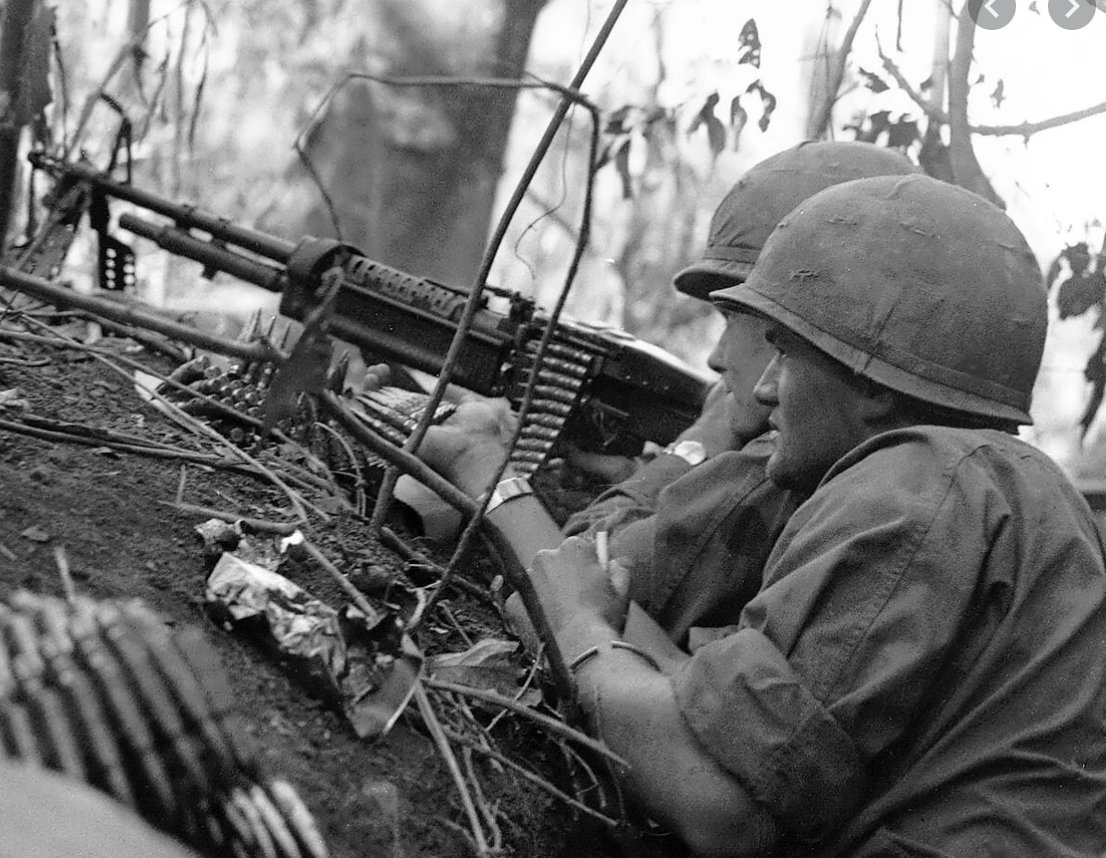
[30 of 48]
Puckett twice landed his command and control helicopter under intense fire to ferry ammo and evacuate dead and wounded Soldiers. As a result of his leadership, Bravo company repelled the attack. Puckett was awarded the Silver Star.
Puckett twice landed his command and control helicopter under intense fire to ferry ammo and evacuate dead and wounded Soldiers. As a result of his leadership, Bravo company repelled the attack. Puckett was awarded the Silver Star.
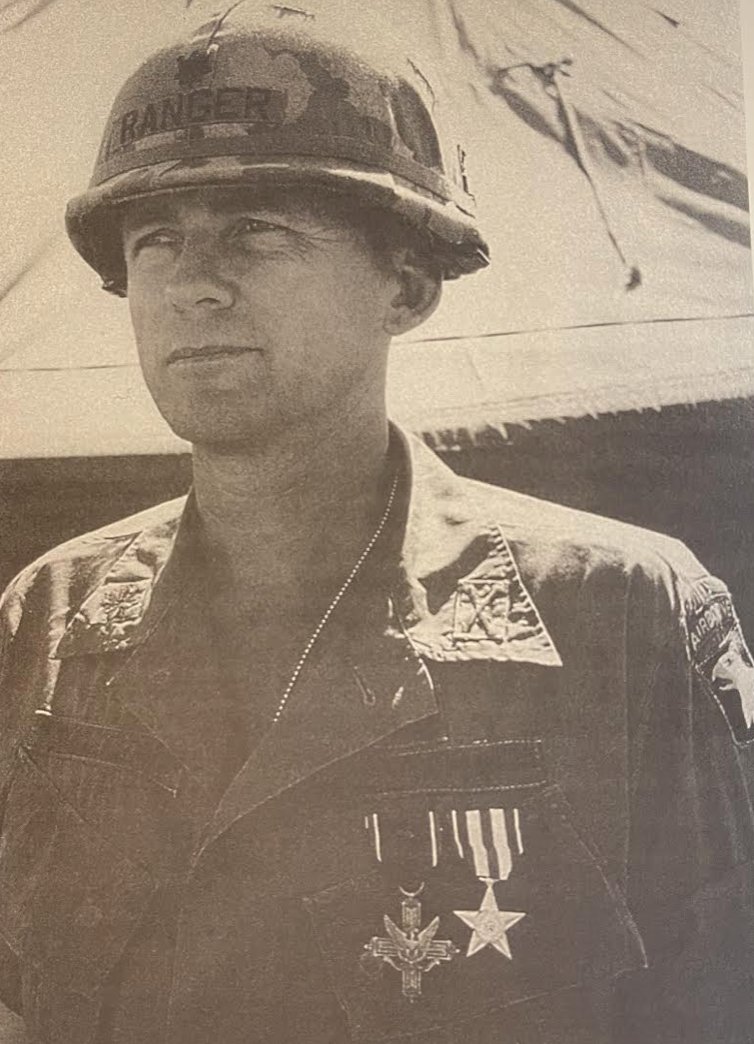
[31 of 48]
September 26, 1967: Again in Chu Lai, Puckett is wounded by an indirect fire attack. Paying no attention to his injuries, he organizes a defense and his men repel yet another attack. Ralph suffers hearing loss and an upper arm wound.
September 26, 1967: Again in Chu Lai, Puckett is wounded by an indirect fire attack. Paying no attention to his injuries, he organizes a defense and his men repel yet another attack. Ralph suffers hearing loss and an upper arm wound.

[32 of 48]
As a result of these wounds, Ralph must be taken out of command. However, he refuses to leave Vietnam and is made the Executive Officer for the 18th Airborne's 1st Brigade, 101st Airborne Division.
As a result of these wounds, Ralph must be taken out of command. However, he refuses to leave Vietnam and is made the Executive Officer for the 18th Airborne's 1st Brigade, 101st Airborne Division.

[33 of 48]
By April, 1968, Ralph has recovered sufficient to take another command in the 18th Airborne Corps in Vietnam: the 1st of the 506th "Currahees." This is our legendary "Bastard Battalion" of WWII.
By April, 1968, Ralph has recovered sufficient to take another command in the 18th Airborne Corps in Vietnam: the 1st of the 506th "Currahees." This is our legendary "Bastard Battalion" of WWII.

[34 of 48]
In the Currahees, Ralph was known for visiting the troops in fighting positions without warning. Soldiers saw him filthy, drenched in rain and sweat, suffering the same conditions as them.
In the Currahees, Ralph was known for visiting the troops in fighting positions without warning. Soldiers saw him filthy, drenched in rain and sweat, suffering the same conditions as them.

[35 of 48]
At the end of his tour with the Currahees, Ralph's leadership approved a Silver Star for his leadership. Ralph refused to accept the award, telling his leadership he'd done nothing to deserve another Silver Star. He'd simply led the way he should.
At the end of his tour with the Currahees, Ralph's leadership approved a Silver Star for his leadership. Ralph refused to accept the award, telling his leadership he'd done nothing to deserve another Silver Star. He'd simply led the way he should.

[36 of 48]
By now the man had gone from legendary warrior to mythical figure. To the Soldiers of the 18th Airborne, he could not be killed. He had survived some of the most violent moments and places in two wars. He was The Ranger.
By now the man had gone from legendary warrior to mythical figure. To the Soldiers of the 18th Airborne, he could not be killed. He had survived some of the most violent moments and places in two wars. He was The Ranger.

[37 of 48]
As unreal as this story is [commanding the first Ranger company in Korea, Hill 205, incredible leadership in Vietnam], it's not done.
After Vietnam Ralph was promoted to Colonel.
As unreal as this story is [commanding the first Ranger company in Korea, Hill 205, incredible leadership in Vietnam], it's not done.
After Vietnam Ralph was promoted to Colonel.

[38 of 48]
From 1968 to 1969 he served as a regimental commander on West Point, from which he graduated in 1949.
In 1969 he moved to Fort Carson to command a brigade.
From 1968 to 1969 he served as a regimental commander on West Point, from which he graduated in 1949.
In 1969 he moved to Fort Carson to command a brigade.
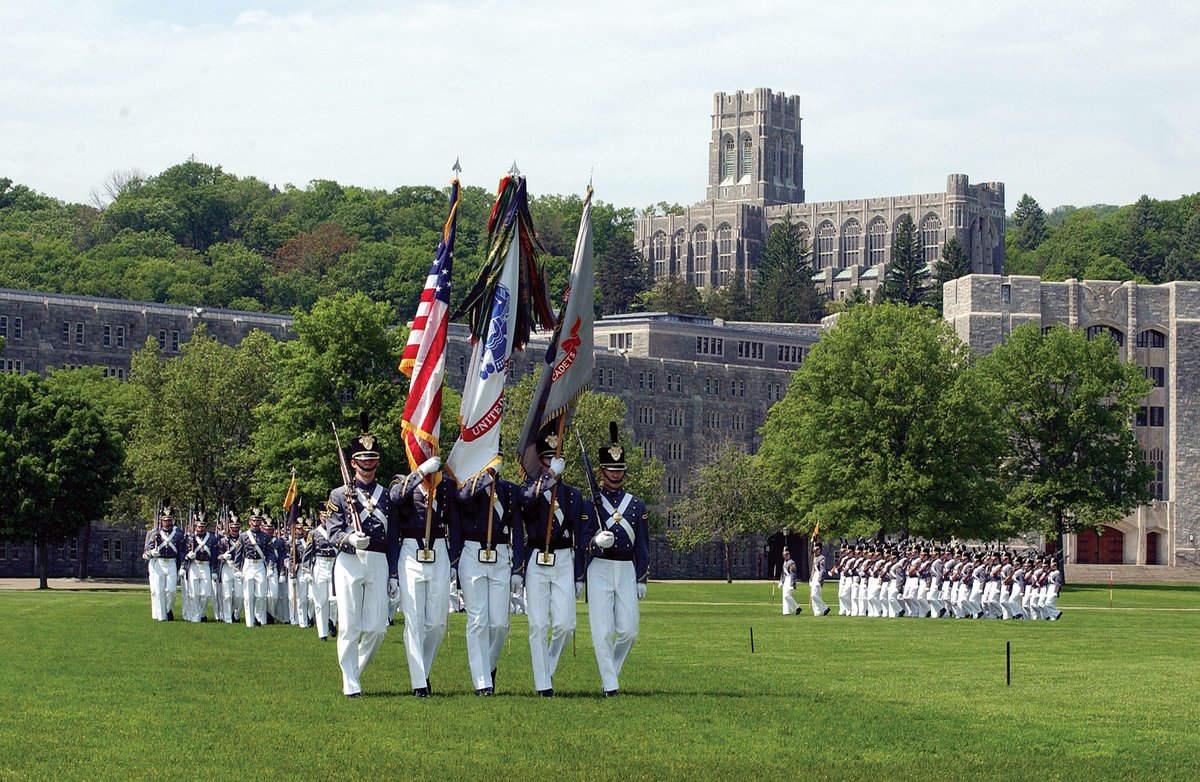
[39 of 48]
In 1971, Ralph was on a certain path to become a General Officer. However, he had no desire to serve a tour as a staffer in the giant Pentagon bureaucracy and instead quietly retired.
In 1971, Ralph was on a certain path to become a General Officer. However, he had no desire to serve a tour as a staffer in the giant Pentagon bureaucracy and instead quietly retired.

[40 of 48]
Ralph left with no chip on his shoulder. He was not disillusioned and he never regretted forfeiting GO.
However, despite the immortal words of MacArthur, this Old Soldier would not fade away.
Ralph left with no chip on his shoulder. He was not disillusioned and he never regretted forfeiting GO.
However, despite the immortal words of MacArthur, this Old Soldier would not fade away.

[41 of 48]
Ralph continued to stay involved in the Rangers. He and Jeannie settled in Columbus, Georgia, civilian life bringing them closer together.
Ralph continued to stay involved in the Rangers. He and Jeannie settled in Columbus, Georgia, civilian life bringing them closer together.
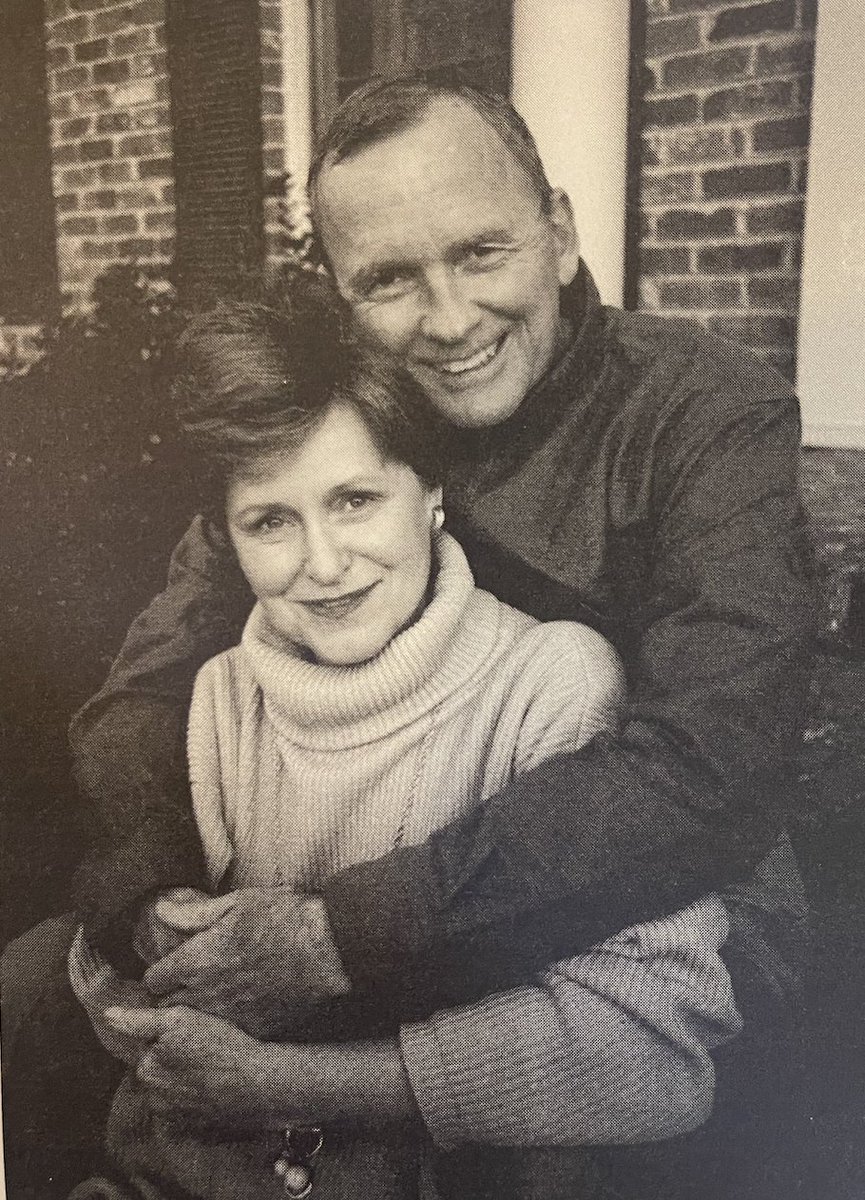
[42 of 48]
In 1992, Ranger school named the Puckett award, given to the officer honor graduate, after him.
That same year he was an inaugural inductee into the Ranger Hall of Fame. In 1996 he was named the Honorary Colonel of the 75th Ranger Regiment.
In 1992, Ranger school named the Puckett award, given to the officer honor graduate, after him.
That same year he was an inaugural inductee into the Ranger Hall of Fame. In 1996 he was named the Honorary Colonel of the 75th Ranger Regiment.

[43 of 48]
For his service with the Rangers, he was awarded the Distinguished Civilian Service Award.
He continued to attend Ranger School events, showing up at the most miserable moments and encouraging the students. "I'll be at graduation. Will you?" he would ask.
For his service with the Rangers, he was awarded the Distinguished Civilian Service Award.
He continued to attend Ranger School events, showing up at the most miserable moments and encouraging the students. "I'll be at graduation. Will you?" he would ask.

[45 of 48]
In 1998, a 72-year-old Puckett was mistaken for an OPFOR in north Georgia. A Ranger candidate put his knee in his back. "Who are you?" he asked.
In 1998, a 72-year-old Puckett was mistaken for an OPFOR in north Georgia. A Ranger candidate put his knee in his back. "Who are you?" he asked.

[46 of 48]
When the reply came "Colonel Puckett," the student replied with "Oh $%%@!" Puckett had a laugh about the incident and tells the story frequently.
When the reply came "Colonel Puckett," the student replied with "Oh $%%@!" Puckett had a laugh about the incident and tells the story frequently.

[END]
"For me, it was about them. It was about the boys. It wasn't about me. It wasn't about my rank, my prestige, my awards. It was about them. Always. And forever."
"For me, it was about them. It was about the boys. It wasn't about me. It wasn't about my rank, my prestige, my awards. It was about them. Always. And forever."

• • •
Missing some Tweet in this thread? You can try to
force a refresh




